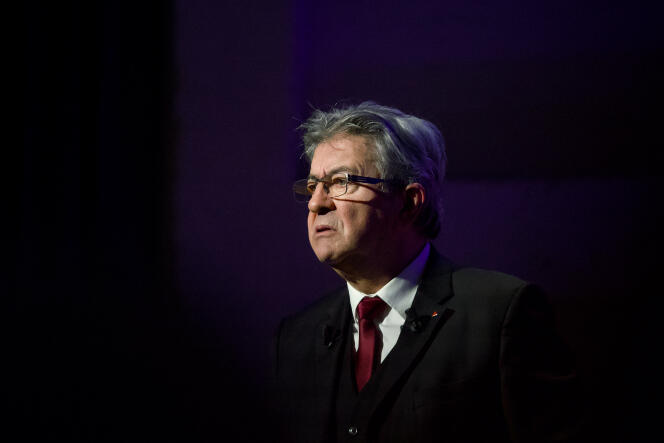


It was time for a reunion. In August 2023, Jérôme Guedj and Jean-Luc Mélenchon had dinner together. The two men had been estranged for 15 years. A few weeks earlier, the funeral of their mutual friend Bernard Pignerol had paved the way for reconciliation. The founder of La France Insoumise (LFI, radical left) and his former parliamentary adviser, who had long been his spiritual son, spent four hours together. Over dinner, Guedj brought up the latest controversy. On July 16, Mélenchon had gone off the rails again, accusing the president of the Representative Council of French Jewish Institutions (CRIF), Yonathan Arfi, of being on the "far-right," provoking indignation and reactivating the anti-Semitism accusations that are often leveled against him. When a "man of the left" is "called an anti-Semite, it means he's not far from power," he said in 2018.
Mélenchon's provocative remarks have been met by interrogations for 10 years, ever since he accused Pierre Moscovici in 2013 of not "thinking French," but "international finance." This criticism evoked an anti-Semitic cliché through the image of the Jewish banker. He had justified this outburst by insisting that he had been unaware of Moscovici's faith, who was then Socialist President François Hollande's economy minister. Yet, little by little, the leader of the leading left-wing party has attracted the animosity of a large number of representatives of the Jewish community.
On that summer evening, he insisted that these accusations were made to "discredit" him, he told Guedj. Guedj no longer understood his former mentor, and confided his "enormous anger" at "someone so intelligent who is throwing bigger and bigger stones," referring to his problematic remarks. "He pushes me to question what should never be questioned," the Socialist MP, an advocate of French secularism who has always refused to "play the Jew token," told Le Monde.
The Socialist and the LFI leader, united in the New Popular Environmental and Social Union (NUPES, France's alliance of left-wing parties), didn't know it, but the massacres committed by Hamas on October 7 would soon mark a breaking point. Indeed, for the NUPES, they mark the start of a crisis that would ultimately lead to its implosion.
Firstly, because Mélenchon has refused to describe Hamas as a "terrorist group." Secondly, because he has made a number of ambiguous statements: He accused Prime Minister Elisabeth Borne – the daughter of a Holocaust survivor – of embracing a "foreign point of view." As well as accusing Yaël Braun-Pivet, the president of the Assemblée Nationale, of "camping out in Tel Aviv" and of not speaking "in the name of the French people." "The worst thing is the idea of anti-France: It reeks of the 1930s," said Samuel Lejoyeux, president of the Union of French Jewish Students, referring to the old anti-Semitic trope of dual allegiance. On December 3, Mélenchon provoked further outrage by calling LCI television journalist Ruth Elkrief a "manipulator" and a "fanatic."
You have 80% of this article left to read. The rest is for subscribers only.
